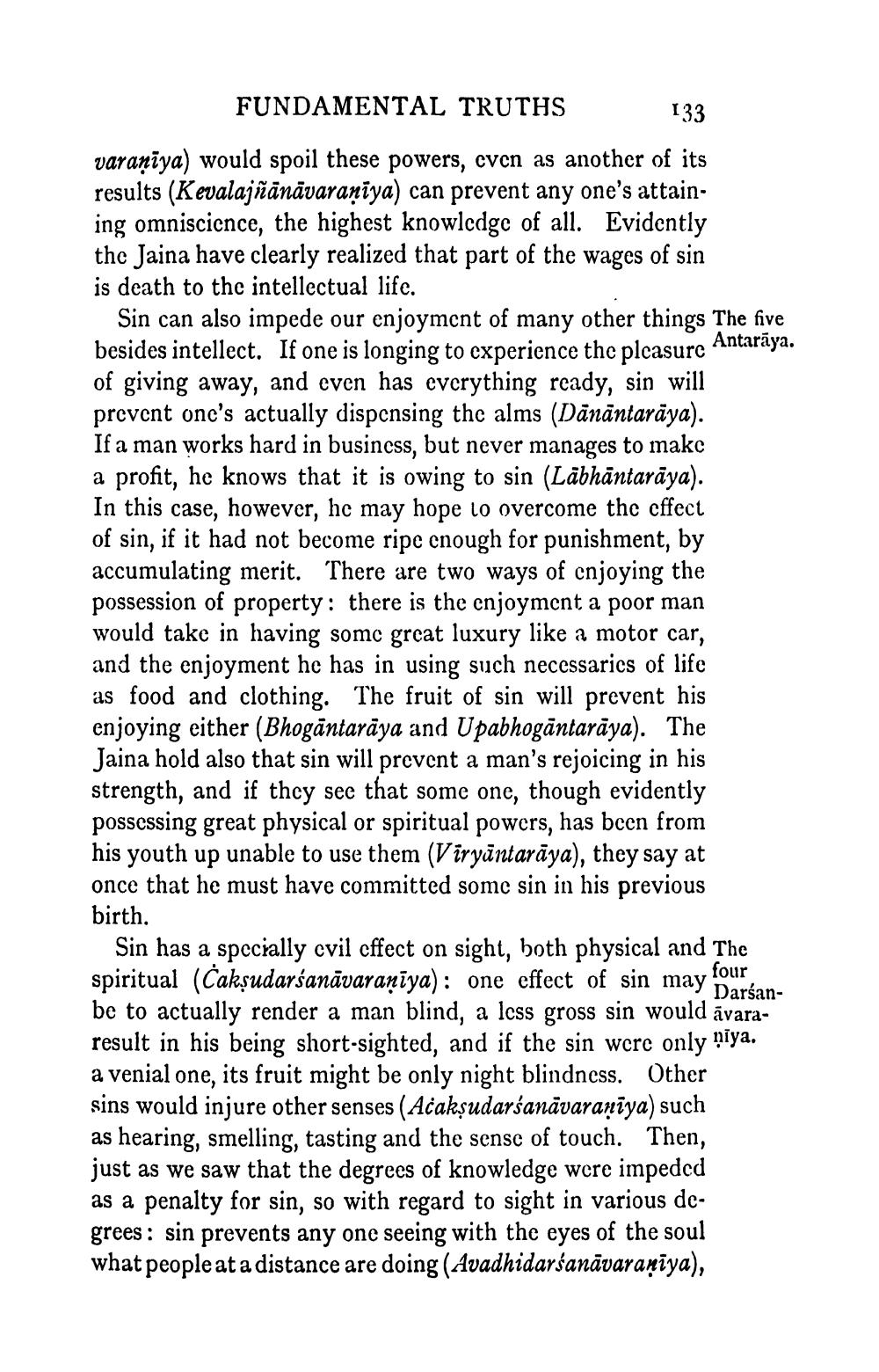________________
FUNDAMENTAL TRUTHS
133 varaṇīya) would spoil these powers, even as another of its results (Kevalajñānāvaranīya) can prevent any one's attaining omniscience, the highest knowledge of all. Evidently the Jaina have clearly realized that part of the wages of sin is death to the intellectual life.
Sin can also impede our enjoyment of many other things The five besides intellect. If one is longing to experience the pleasure Antaraya. of giving away, and even has everything ready, sin will prcvcnt one's actually dispensing the alms (Dānāntarāya). If a man works hard in business, but never manages to make a profit, he knows that it is owing to sin (Läbhāntarāya). In this case, however, he may hope lo overcome the cffect of sin, if it had not become ripe enough for punishment, by accumulating merit. There are two ways of cnjoying the possession of property: there is the cnjoyment a poor man would take in having some grcat luxury like a motor car, and the enjoyment he has in using such necessaries of life as food and clothing. The fruit of sin will prevent his enjoying either (Bhogāntarāya and Upabhogāntarāya). The Jaina hold also that sin will prevent a man's rejoicing in his strength, and if they see that some one, though evidently possessing great physical or spiritual powers, has been from his youth up unable to use them (Viryūntarāya), they say at once that he must have committed some sin in his previous birth.
Sin has a specially cvil effect on sight, both physical and The spiritual (Cakşudarśanāvaraṇīya): one effect of sin may area be to actually render a man blind, a less gross sin would āvararesult in his being short-sighted, and if the sin were only niya. a venial one, its fruit might be only night blindness. Other sins would injure other senses (Acakşudarśanāvaranīya) such as hearing, smelling, tasting and the sense of touch. Then, just as we saw that the degrees of knowledge were impeded as a penalty for sin, so with regard to sight in various degrees : sin prevents any one seeing with the eyes of the soul what people at a distance are doing (Avadhidarśanāvaranīya),




